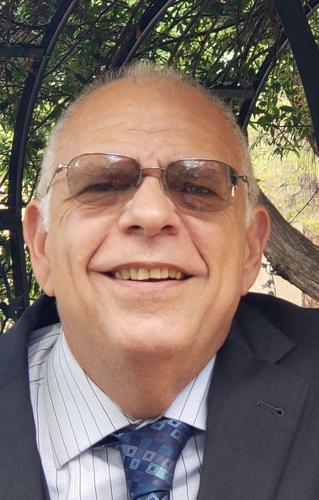The former facilities coordinator at the University of Arizona Cancer Center is suing the board that oversees his ex-employer, claiming his contract was not renewed in mid-2018 after he was told by a supervisor he was “too old and feeble” and shortly after he returned from hip surgery.
The employee, 63-year-old Elik Essif, filed the lawsuit in U.S. District Court in Arizona on Dec. 23, roughly two months after a complaint with the U.S. Equal Employment Opportunity Commission was dismissed and he was provided a notice of his right to sue. He claims violations of the Age Discrimination in Employment and Family and Medical Leave acts.
The lawsuit names as defendants the Arizona Board of Regents, of which the University of Arizona is a legal subdivision; ABOR chair Larry Penley; University of Arizona President Robert C. Robbins; and Ioannis Stasinopoulos, Essif’s former supervisor. Essif, who worked at the university since 1985 and in the facilities coordinator position since 2008, alleged in the lawsuit and in an interview with the Star that his issues began after Stasinopoulos was hired as the center’s research development administrator in June 2017.
His job entailed working with Cancer Center faculty and staff to purchase equipment, design and construct laboratories, and relocate staff, among other requirements, he said.
Stasinopoulos notified Essif in February 2018 that he would be hiring a facilities manager to assist him because he was “too old and feeble,” according to the lawsuit. A new facilities manager was hired around March and was much younger than Essif, according to the suit.
“I was just taken aback by that,” Essif said.
Around the same time, Essif inquired about having a hip surgery to correct a limp, to what Stasinopoulos called an “aged gait,” according to the lawsuit. He was granted a request through the Family and Medical Leave Act in March.
He was notified in April that his employment would not be renewed, effective July 31, 2018. He had surgery to correct the limp that May, and returned to work prior to his final day, according to the lawsuit.
A university spokesman declined to comment, citing a policy to typically not to comment on pending litigation. He added that Stasinopoulos no longer works at the UA, although he cannot comment on the specific circumstances regarding why. Essif told the Star that things just “didn’t click” with Stasinopoulos, but that he didn’t intend to file any legal action until an email he received from Karlie Passey, a university human resources employee at the time.
She wrote in a July 2018 email to Essif that Stasinopoulos told her shortly after his arrival that Essif “cannot do the job — he’s too old,” according to a copy of the letter shared with the Star.
Passey notified Stasinopoulos that as long as he can perform the job requirements, age is irrelevant, to which Stasinopoulos replied, “Just look at him. Are we going to ignore the obvious?” She wrote that she immediately reported the conversation to her supervisor. Essif filed a discrimination complaint with U.S. Equal Employment Opportunity Commission office in Phoenix in October 2018, according to records obtained by the Star.
In a response to the allegation, an attorney for the UA contended that Essif’s appointment was not renewed “because of performance issues, specifically his unwillingness to adapt to new processes, his mismanagement of finances and projects, and his inability to take on higher level tasks,” according to records.
The university specifically accused Essif of being late or missing meetings with Stasinopoulos, improperly making purchases, and having a lack of organization and responsiveness when it came to arranging for maintenance and organizing office and laboratory moves for Cancer Center faculty, according to the letter.
“The university chose not to continue its employment relationship with Mr. Essif because his performance issues and inability to follow directives were an impediment to the functioning of the Cancer Center, not because of his age,” wrote Elizabeth W. Miller, UA’s associate general counsel, in the February 2019 letter.
Essif’s attorney contended in a May 2019 response that the missing and late arrival of the meetings “has been greatly exaggerated,” that all purchases were done with proper protocols, and that project management skills “is an area where his skills shined.”
The charge was dismissed in September after the EEOC did not “believe that additional investigation would result in our finding a violation,” according to records. He was provided notice of a right to sue the same day. In the lawsuit, Essif requested an unspecified award for any salary pay and damages as a result of his termination, as well as attorney’s fees.
He said he’s been suffering PTSD and depression since his dismissal, and that he’s been searching for a new job to no avail. He’s been involved with the International Facilities Management Association, of which he previously served as the president, and volunteering with his free time.
Essif ultimately said he filed the lawsuit because he felt “this just isn’t right.”
“It’s been daunting in a lot of respects because the UA dismissed everything in their response,” he said.







